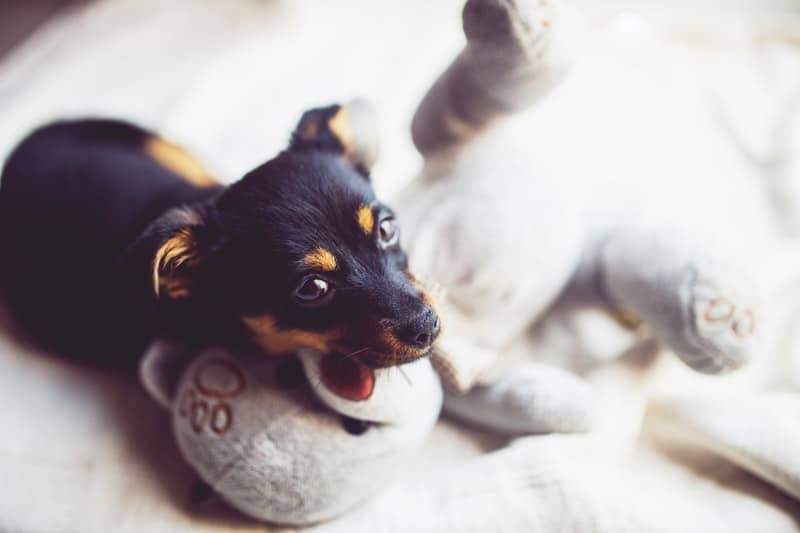Last Updated on May 23, 2020 by ellen
Are you wondering about how to deal with biting behaviors? Even though biting is considered as a normal behavior, you should also keep in mind that when dogs get older, it could pose a serious risk to others including yourself. It may be cute in the puppy stage, but as they grow, it’s not cute anymore. You have to start when you still have a puppy to get them to change their behavior regarding biting.
Posts may be sponsored. This post contains affiliate links, which means I will make a commission at no extra cost to you should you click through and make a purchase. As an Amazon Associate I earn from qualifying purchases.

How to Deal with Biting Behaviors
As a puppy, biting is a learned behavior that comes from their mother and additional litter. Because they are not always with their mother, the human that takes care of them must be responsible for making the change.
While still in the puppy stage, allow the puppy to play with other puppies. They like to interact with each other and sometimes that will include biting. As they do this, they can learn to control themselves.
If there is one puppy that is overly aggressive, the others will get after the aggressive puppy for being too rough. As they continue to play with each other, the puppy will learn to subside with the biting.
You can start very early while they are still a puppy when they are at least four to six weeks old. Here are some tips that you can take to get an advantage:
- Let the puppy know that you hurt when they bit you. You can be stern and say “no” or “ouch” to let the puppy know that it hurt you. The puppy will know that they have gone too far and they will think about what they’ve done.
- Slowly take your hand away. Doing this too fast can cause more damage.
- If they bite you again, repeat your verbal reaction. Step away from the puppy for a while. They will realize that you don’t appreciate what they did and will figure out that you don’t want to be around them.
- Give them a toy to chew on.

- Reward the puppy when they are good and not biting you.
- Be consistent when you are training them to stop biting. Continue to let the puppy know that bites are not acceptable.
- Your puppy should take an obedience class. That way he can interact with other dogs as he gets older. He will learn about limits with humans and other dogs.
- As your puppy gets older and grows into a dog, he needs lots of physical activity, including regular exercise. Also, give them a chance to play outside so that he can get some fresh air. Make sure he gets to walk and play fetch. This can help them not think about biting.
- Keep them on a schedule with their physical activities. They will get used to doing things and will come to enjoy doing them.
- Keep young children out of harm’s way by not leaving them alone with the puppy. The puppy may still be in the learning stage and may bite the child.
- Refrain from aggressive behavior with them. That can influence them to continue biting.
- If they continue to bite despite your best efforts, contact your veterinarian or a dog trainer for assistance.
What is your best advice for how to deal with biting? Learn what to do if you’re the victim of a dog attack.

Ellen runs a small pet sitting business in southern Vermont. She has experience with a variety of small animals, dogs and cats. She has also cared for ducks, chickens and rabbits. Combined, she has over 20 years of experience in pet care and pet sitting.